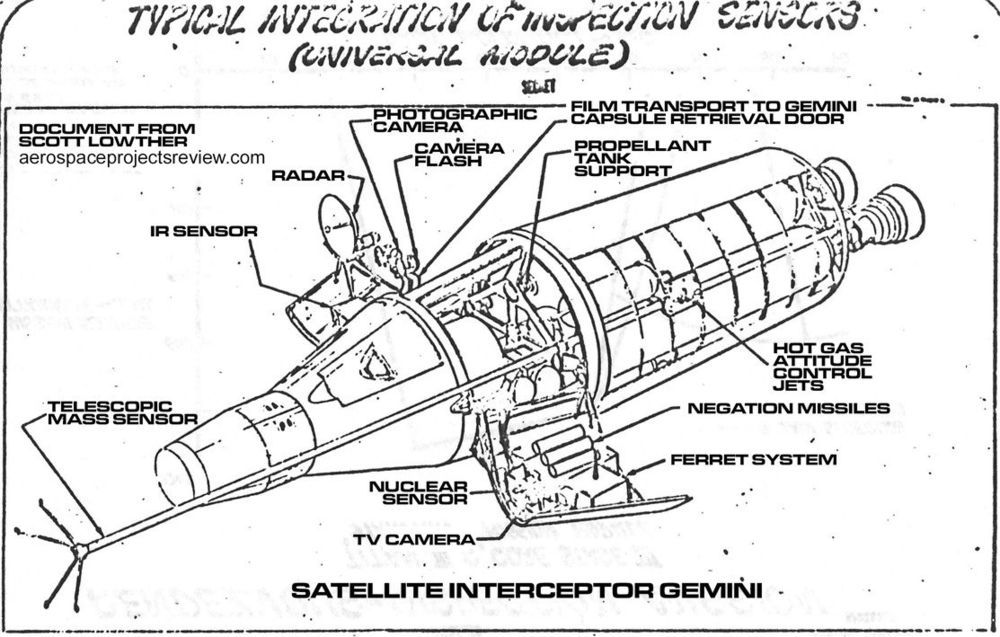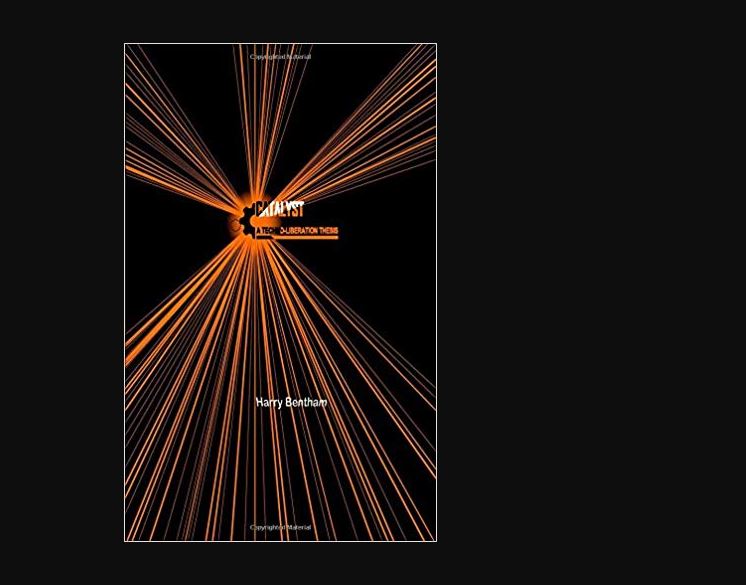Flat tires could soon be a thing of the past! Michelin and GM are working on an airless, puncture-proof tire that they say will make the roads safer for drivers. DETAILS: https://bit.ly/2F7HAcf
Get the latest international news and world events from around the world.

Atomic Rockets
 Among science fiction stories with space flight, the overwhelming majority are about combat, both between spacecraft and between futuristic ground troops. Not to mention the occasional starship marine assault trying to board a hostile ship while in flight. Yes, there are a few non-combat stories, mostly about exploration, but space combat is here to stay.
Among science fiction stories with space flight, the overwhelming majority are about combat, both between spacecraft and between futuristic ground troops. Not to mention the occasional starship marine assault trying to board a hostile ship while in flight. Yes, there are a few non-combat stories, mostly about exploration, but space combat is here to stay.
This is just the natural continuation of the process of militarisation of space
Which naturally leads to questions about the space branch of the military of various nations. The “astro-military” in other words. Some may start out as a subdivision of an existing branch and eventually grow large enough to split off (such as how the US Army Air Corps spit off to become the US Air Force in 1947). Some may grow large enough to absorb other branches of the military, others may be reabsorbed into other branches. In William Keith’s Galactic Marines series one of the themes of the early novels is how the US Marines fight being absorbed or eliminated. Their solution is diversifying their mission to include performing assaults on Luna and Mars.


New prostate cancer test will give men ‘peace of mind’ that they will never develop the disease, scientists say
A new one-off prostate cancer test at the age of 55 promises to give men “peace of mind” that they will never develop the disease, scientists have revealed.
The 10-minute scan, which could be rolled out in supermarkets and shopping centres, detects dangerous cancers years before they cause any harm while ignoring growths that do not pose a threat.
Subject to a government-funded trial beginning this summer, the new MRI (magnetic resonance imaging) technique should enable the world’s first universal screening programme for prostate cancer.


Long-lived bats could hold secrets to mammal longevity
University of Maryland researchers analyzed an evolutionary tree reconstructed from the DNA of a majority of known bat species and found four bat lineages that exhibit extreme longevity. They also identified, for the first time, two life history features that predict extended life spans in bats.
Their work is described in a research paper, published in the April 10, 2019 issue of the journal Biology Letters, which concluded that horseshoe bats, long-eared bats, the common vampire bat and at least one lineage of mouse-eared bats all live at least four times longer than other, similarly sized mammals. The researchers also found that a high-latitude home range and larger males than females can be used to predict a given bat species’ life span.
“Scientists are very interested in finding closely related species in which one is long lived and one is short lived, because it implies that there has been some recent change to allow one species to live longer,” said Gerald Wilkinson, a biology professor at UMD and lead author of the paper. “This study provides multiple cases of closely related species with varying longevity, which gives us many opportunities to make comparisons and look for some underlying mechanism that would allow some species to live so long.”

The surprising way some people are fighting aging
Dr. Alan Green’s patients travel from around the country to his tiny practice in Queens, N.Y., lured by the prospect of longer lives.
Over the past two years, more than 200 patients have flocked to see Green after learning that two drugs he prescribes could possibly stave off aging. One 95-year-old was so intent on keeping her appointment that she asked her son to drive her from Maryland after a snowstorm had closed the schools.
Green is among a small but growing number of doctors who prescribe drugs “off-label” for their possible anti-aging effects. Metformin is typically prescribed for diabetes, and rapamycin prevents organ rejection after a transplant, but doctors can prescribe drugs off-label for other purposes — in this case, for “aging.”


Catalyst: A review of 7 predictions from 2013
My own 2013 book Catalyst: A Techno-Liberation Thesis offered a prediction of the political future, viewing the near-term future as a time of crisis shaped by the nature of technology and the slowness of states to adjust to it. As this struggle becomes more acute, guarded new technologies will also get stolen and overflow across borders, going global and penetrating every country before they were intended to. States and large companies will react with bans and lies as they try to save their monopolies. Ultimately, over a longer time-frame, the nation-state system will collapse because of this pressure and an uncertain successor system of governance will emerge. It will look like “hell on earth” for a time, but it will stabilize in the end. We will become new political animals with new allegiances, shaped by the crisis, much as the Thirty Years’ War brought about our Westphalian nation-state model. Six years on from my book, are we any closer to what I predicted?
- The internet is “liberating” and “empowering” in a political sense (pp. 2, 3)
- Uncertain outcome. Will current habits of censorship, de-platforming and other techno-enslavement as a result of controversies like “Russiagate” persist or are they temporary? If the economically or commercially favorable course is one of freedom and the removal of all filters and bans, will we see a reversal in the next few years? As younger politicians replace the old, will the internet become a sacred anarchy again?
- “Duplicitous policies” preserve the status of rich countries as exploiters and bullies (p. 11)
- Yes, and it is increasingly obvious. Such policies became exposed and visible under the Trump administration, which openly declares its national interest to lie in the economic deprivation of others and sabotage of their tech. This has been criticized as harmful to free trade, and has been described as “de-globalization”. Even Russian President Vladimir Putin remarked that the tech war complicates the issue of global inequality (a rare observation seemingly asserted only in the Catalyst Thesis before recently).
- “Nano” and “bio” appliances will be in the household and will “shrink” production processes, abridging these processes so they are not corporate or state controlled and are in the “hands of the people” (p. 15)
- This is uncertain. If there has been progress towards this outcome, it is not visible and has not had a major impact on world events. The possibility of it has started to cause concern for states and monopolistic schemes, but this is more in the ‘alarm’ stage rather than the ‘ban’ stage. More time may be needed, before this trend has a deeper impact on society.
- The nation-state system is being weakened by technology, media and globalization (p. 16), anti-state forces are “winning”
- Well, not really. As of 2019, unless everything we just saw was a hiccup in the grand plan of history, the “ideological mask” of exploitation and division — the nation-state system — has reasserted itself. In almost every policy area in every country, the clock is running backward towards nationalism, censorship, borders, walls, and deep paranoia. Almost everyone on the political left and right is part of the problem, wittingly or unwittingly. Whether you support Trump or think he’s a Russian asset, or even care, your views and values are right out of the Nineteenth Century. We have seen the defeat of net neutrality, along with the passive acceptance of censorship on social media in the foolish assumption it will only be used on targets we dislike or who went too far. There seems to have been a lack of any major follow-up disclosures of government abuses on the scale of Edward Snowden’s, and whether it will ever happen again is questionable. With all these things considered, “losing” might be a better description of the situation for anti-government techno-politics as of 2019. If what is happening is not a minor disruption in the flow of history, it is consequential for the Catalyst Thesis and severely undermines its value. If the “soft” battle is lost as described above, and we revert to a society dominated entirely by strong states and corporations, the “hard” battle of techno-liberation may never start in our lifetimes.
- Historical transitions are “dark and filled with reaction” (p.23)
- Yes. This appears to still be the case. The reaction may be what we are already facing, as all elites invested in the old system desperately try to suppress the global political will, motivated by fear of a new world order in which they are demoted.
- “Open-borders global political will” will form as a result of the internet, translation software, and the difficulty of statists in managing the overflow of popular technologies and their users (pp. 24, 25)
- Yes. Almost every attempt by the media conglomerates and/or state to create a uniform public opinion about an election, a global issue, a scandal, etc. is failing because of alleged foreign “trolls”. They cannot be stopped because the internet’s circulatory system is not for one nation, but completely open to the world. That is the whole point of it, the reason it is the internet. The US 2016 election was the most visible example of the loss of control. Repressive and paranoid statements ensued. But, as of 2019, governments and media still gasp at the results they are getting.
- We will see new or experimental technologies shared illegally, the way information is leaked (p. 37)
- Uncertain. Edward Snowden and Wikileaks do not seem to have captured as many imaginations as they should have, given how central they have been in the story of the internet. It is difficult to argue that the next generation will be even more rebellious, if they are to grow up in a much more monitored and conformist society. If the anarchy of the internet is going to be stopped and the smallest infractions punished as treason, this will damage the thinking of younger people who should have grown up noticing the contradictions in society. If, on the other hand, younger people are increasingly trained to be highly capable in the cyber-world (e.g. coding classes), we may see an even bigger generation of cypherpunk rebels accidentally raised by the state.
Catalyst is read in less than a day, and can be found on Kindle as well as in print. It was written to bring together a number of ideas and predictions I presented in articles at the IEET website, h+ Magazine, and other websites and includes full lists of sources. If you prefer to see more first, follow @CatalystThesis on Twitter or sign up to the email newsletter.